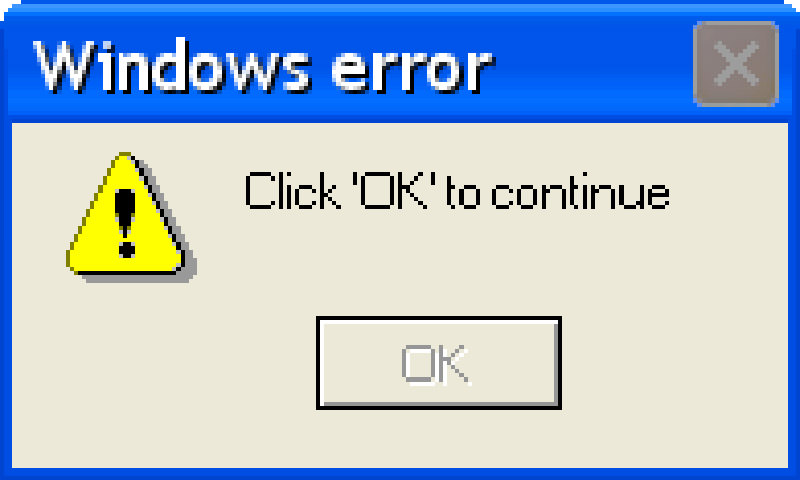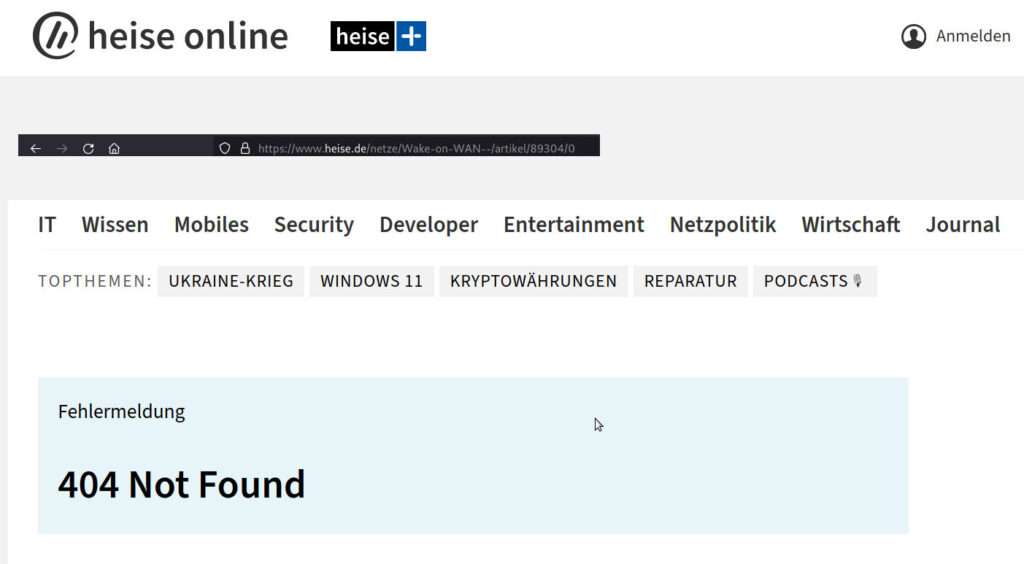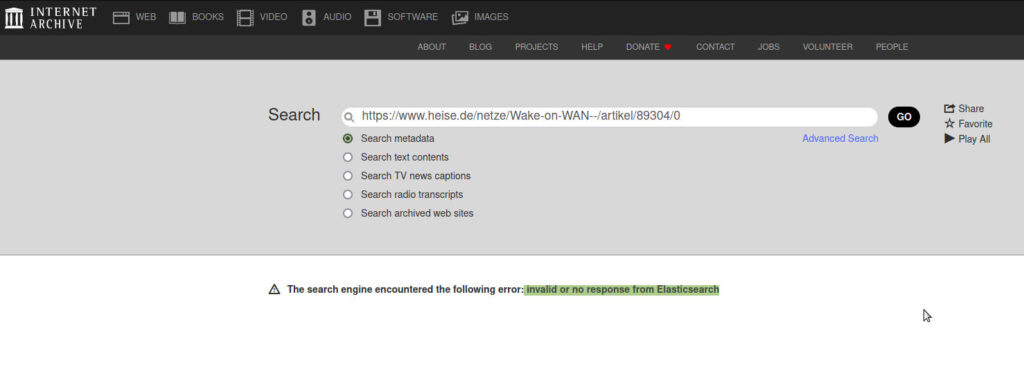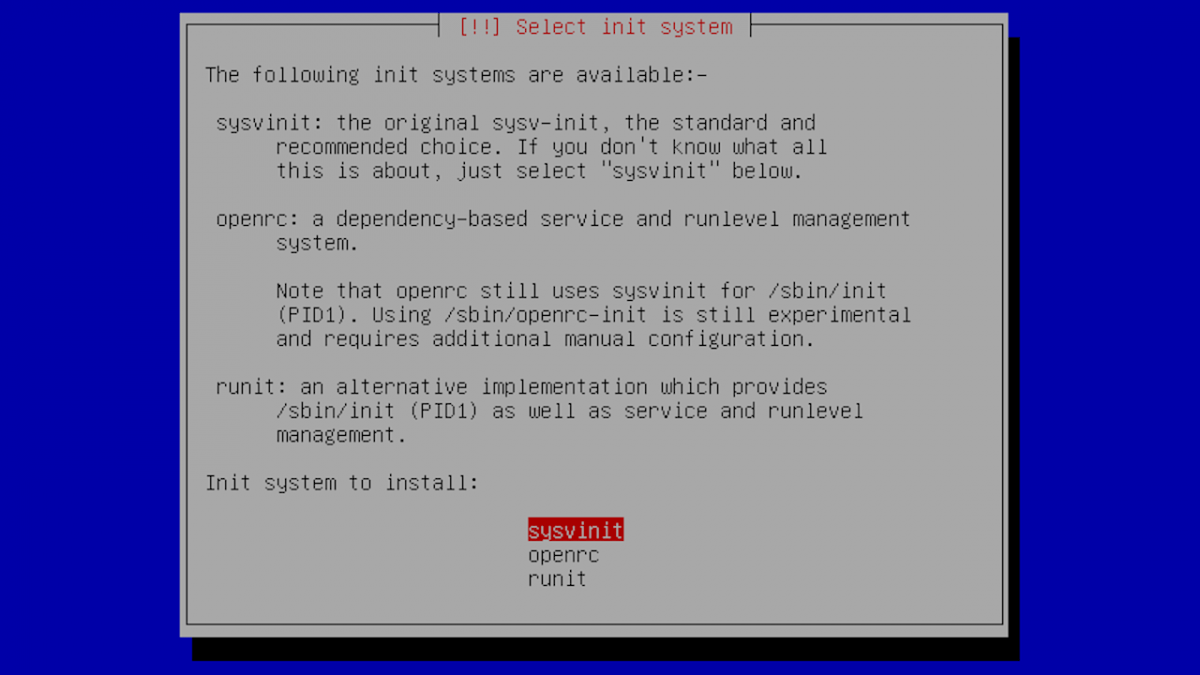https://administrator.de/forum/wol-geht-nicht-mit-broadcast-adresse-101944.html
-> it’s catastrophic, when webpages change their url setup…
https://www.heise.de/netze/Wake-on-WAN–/artikel/89304/0
because it will result in
“nothing works” “ok”
this does not have nothing to do with luck, but with:
- bad url management:
- wordpress does an pretty good job there, as whenever the user changes the url (more keywords?) it will also redirect from the older past urls to the new url
- that is how it is SUPPOSED to be for EVERY website of the (not so) “ethernal” part of the internet called www
- wordpress does an pretty good job there, as whenever the user changes the url (more keywords?) it will also redirect from the older past urls to the new url
- elastic search seems to be a very very badly written software that does not do any sort of software quality checks?
- or maybe it’s wrongful integration? (but maybe it just sucks)
- why is every developer-user using it?
- PS: as mankind still ponders and evolves (by making mistakes) how to best deal with computers
- yes someone said “publish early” & “publish often” (doing this with the blog… also… often too often and too early X-D)
- or: “Release early, release often” (wiki)
- “tight feedback loop between developers and testers or users” (wiki) - yeah sure as a developer that might be a good thing, as a user… really doubt it… - there are highly intelligent respected developers that pioneered this concept… it might work for small teams… (of one)
- “This philosophy was popularized by Eric S. Raymond in his 1997 essay The Cathedral and the Bazaar, where Raymond stated “Release early. Release often. And listen to your customers”.[4]”“This philosophy was originally applied to the development of the Linux kernel and other open-source software, but has also been applied to closed source, commercial software development.” “The alternative to the release early, release often philosophy is aiming to provide only polished, bug-free releases.[5] Advocates of RERO question that this would in fact result in higher-quality releases.[4]“
- has this lead to every developer going in the: continuous development/continuous integration direction? (definately sounds like it)
- it really should be called CD/CI not CI/CD because first comes the development, then the integration (but well hewego: CI/CD@RedHat)
- still pondering if it’s really a good idea
- well if software quality sticks to UNIX principles of K.I.S.S (most do not and have NO IDEA what non-K.I.S.S means for their software-project or company:
- it is the difference between:
- lost in chaos of complexity = dysfunctionality
- vs a lean stream of running smooth software-company
-
 src: https://homepage.cs.uri.edu/~thenry/resources/unix_art/ch01s07.html
- plus test-driven development: 100.000 use case checks tested afterwards automatic & semi-automatic & manual
- than that probably works (but then that is what needs to be done anyway to ensure good software quality)
- plus: maybe a feedback channel that does not de-motivate
- always say something positive first
- then the critique
src: https://homepage.cs.uri.edu/~thenry/resources/unix_art/ch01s07.html
- plus test-driven development: 100.000 use case checks tested afterwards automatic & semi-automatic & manual
- than that probably works (but then that is what needs to be done anyway to ensure good software quality)
- plus: maybe a feedback channel that does not de-motivate
- always say something positive first
- then the critique - signal.org is a very cool mobile & desktop messenger (that usually works pretty well) but: - what is already annoying: if updates per program are 100MBytes and more… (always downloads the full thing (signal.org desktop client) no differential updates?)
- or: “Release early, release often” (wiki)
- yes someone said “publish early” & “publish often” (doing this with the blog… also… often too often and too early X-D)
- word of advice: never blindly follow “the trends”
- always think for yourself, “does it make sense”?
- test it if it works for you, if not, drop it, what’s the point?
- always think for yourself, “does it make sense”?
#linux #gnu #gnulinux #opensource #administration #sysops #rant #software #quality #mess #archive #heise #url #urls #redirects #ci-cd #cd-ci #CICD #CDCI #dev #systems #system #company #developers #developer
Originally posted at: https://dwaves.de/2022/02/03/rant-open-source-and-the-concept-of-release-early-release-often-or-publish-early-publish-often-continuous-development-continuous-integration-cd-ci-tight-loops-ok-but-still-linking-to-n/

















